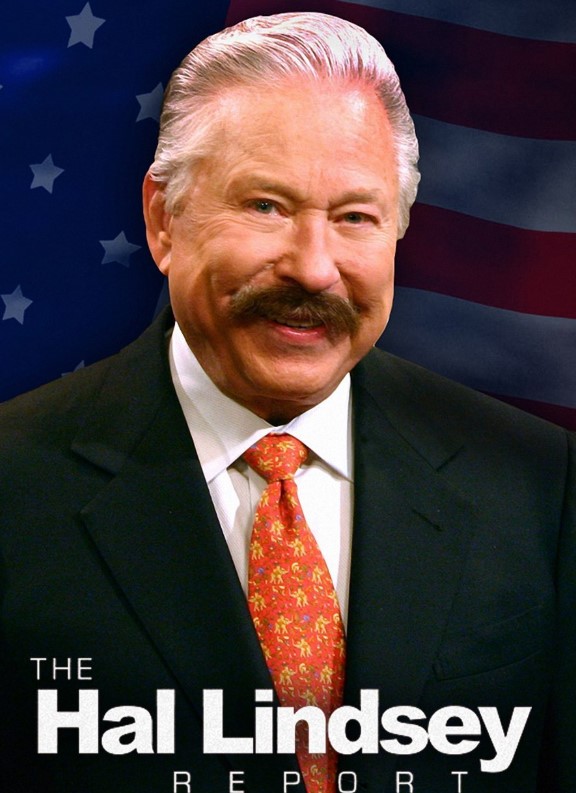Key Takeaways
- Hal Lindsey passed away at the age of 95.
- He gained fame with his groundbreaking 1970 book, “The Late Great Planet Earth.”
- His legacy continues through his written and broadcast works.
Hal Lindsey, an influential American evangelical writer and television host, passed away on November 25, 2024, at the age of 95.
His demise has deeply saddened many, sparking an outpouring of tributes from admirers and followers who revered his teachings and broadcasts.
On X (formerly Twitter), a user expressed:
One of my heroes passed away. But it’s okay— he is now in heaven with Jesus! Hal Lindsey was faithful to the end, and is one of the key figures responsible for opening Christians’ eyes to the reality that we are living in the End Times, and that the Rapture is soon! RIP, Hal 💔
Via X
Another wrote:
I will always love Hal Lindsey. I learned so much wisdom from this great and awesome teacher of God. We will always love and honor you. Rest in The Arms of God Most High. https://t.co/KGABjQl49N
— Katherine Marie (@1stKings1821) November 27, 2024
The third one shared:
Rest in Heaven Hal Lindsey. Prayers of peace and comfort for his friends and family.
Via X
The numerous tributes highlight the deep appreciation for his spiritual leadership and the profound sense of loss felt by his followers.
Hal Lindsey’s work significantly influenced those who followed his career. His deep commitment to discussing key biblical prophecies resonated with a broad audience, encouraging many to delve into their beliefs and the biblical teachings about the future.
Through his books and broadcasts, he made complex theological themes accessible, leaving a lasting mark on the field of biblical prophecy.
As his fans reflect on his legacy, they remember how his teachings inspired a deeper examination of faith.
Hal Lindsey’s Contribution: Bridging Biblical Prophecies and Contemporary Events
Hal Lindsey’s influence in shaping modern Christian eschatology is evident in his deep understanding of biblical prophecies.
A Dallas Theological Seminary graduate, Lindsey first gained prominence with his groundbreaking 1970 book, “The Late Great Planet Earth.”
This bestselling work linked biblical prophecies to contemporary events, making complex theological ideas accessible and intriguing to a broad audience.
He gained further recognition as the host of “International Intelligence Briefing” on TBN.
However, he resigned on January 1, 2006, due to his show being preempted for Christmas programming and disagreements over its content, which some viewed as too pro-Israel and anti-Muslim.
Despite these conflicts, he launched “The Hal Lindsey Report,” continuing his focus on biblical prophecy and current events. He even returned to TBN in January 2007, this time financing the show himself.
Lindsey’s work is based on a dispensationalist interpretation of the Bible, proclaiming that Jesus Christ will return to establish eternal peace.
He interpreted the re-establishment of Israel in 1948 and the forming alliances among nations like Russia, China, and Western Europe as signs of the approaching end times.

Lindsey viewed unity among Western European nations as the revival of the Roman Empire, prophesied in the books of Daniel and Revelation, and predicted that the Antichrist would lead it.
He often expressed concerns about the absence of the United States in biblical prophecies, suggesting it indicated a potential decline in global influence before the end times.
His 1980 book, “The 1980s: Countdown to Armageddon,” speculated that the battle of Armageddon could occur soon, possibly involving a Soviet nuclear attack and U.S. reliance on a European alliance.
Lindsey’s extensive bibliography, including “Satan Is Alive and Well on Planet Earth” (1972), “The Liberation of Planet Earth” (1974), and “Combat Faith” (1986), showcases his diverse approach to discussing faith and prophecy.
His later works, such as “The Greatest Gift: God’s Amazing Grace” (1999) and “The Everlasting Hatred: The Roots of Jihad” (2002), continue to engage readers with unique perspectives on faith and world events.
Lindsey’s legacy as a pioneering voice in eschatology and Bible prophecy endures.
His writings, broadcasts, and teachings have left a lasting impact, connecting faith with the unfolding of global events.
In Case You Didn’t Know
- Hal Lindsey was born on November 23, 1929, with the birth name Harold Lee Lindsey.
- In 1994, he obtained his Doctorate in Theology from the California Graduate School of Theology.
- He practiced Christian Zionism and believed in dispensationalist theology.



